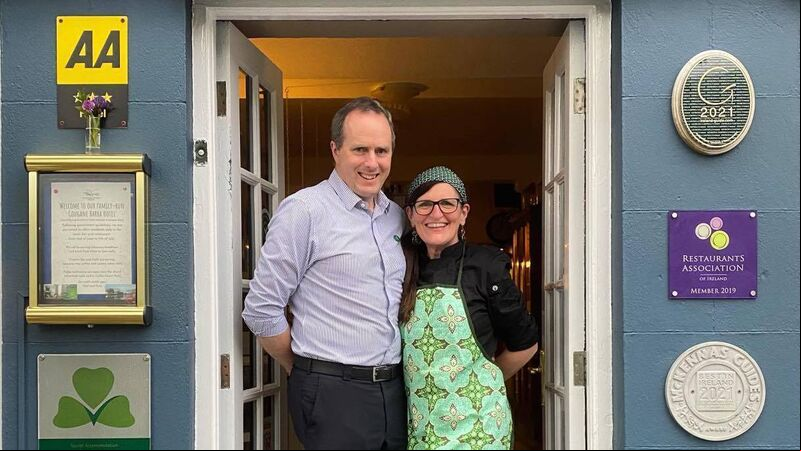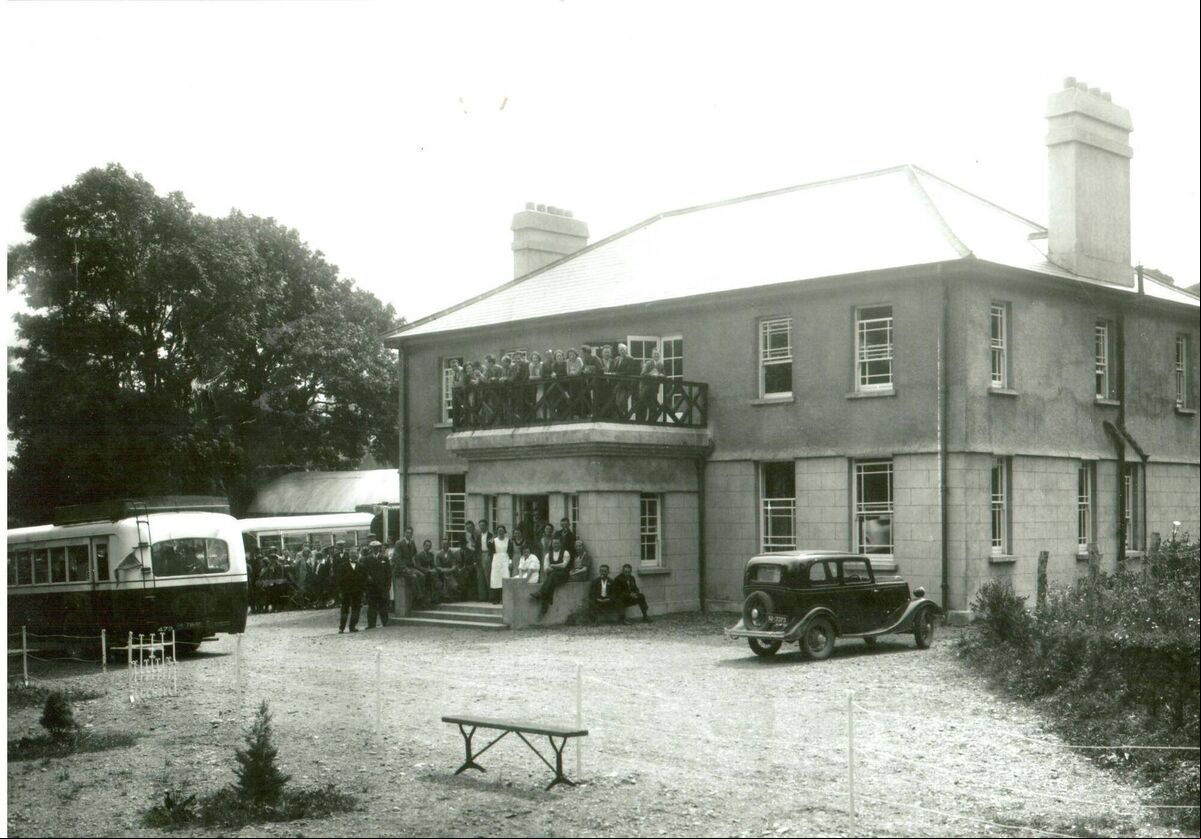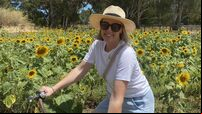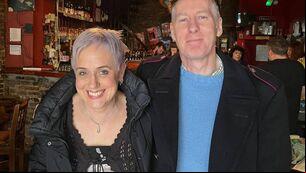‘We are the keepers of the valley’: Cork hoteliers balancing business and sustainability

Neil and Katy Lucey at the Gougane Barra Hotel
Gougane Barra National Park is a landscape where time has stood still.

Donnacha Cronin took a lease at the former hunting lodge of Lord Townshend, making repairs while working as water bailiffs on the Lee. The original Prince of Wales Stagecoach route connecting Macroom to Kenmare stopped here before trains took over, so Donnacha opened a síbín to serve them, soon followed by rooms to accommodate visitors overnight.

The hotel was established by Neil’s great-grandmother, Bridget Scriven, who married Donnacha Cronin’s son, James, and together they ran the hotel.

It was Neil’s parents, Breda and Christy, who eventually bought back Cronin’s during the 1980s and, with Gougane Barra Hotel, established themselves as purveyors of quintessential Irish hospitality in the valley.

The private holding is some 800-acres comprising hotel, bar, and sheep farm. In Neil’s lifetime, he has witnessed how, as farming has receded from the mountain, the landscape is naturally recovering.

Katy’s cooking also embraces that quiet sustainability Neil recognises in the landscape. It’s about great ingredients cooked well, often to a library of recipes ed down through the family – like the duck dish, or soups made to Neil’s grandmother’s style with a strong potato base, or Katy’s father’s version of a seafood chowder made with a light tomato base.







 App?
App?


